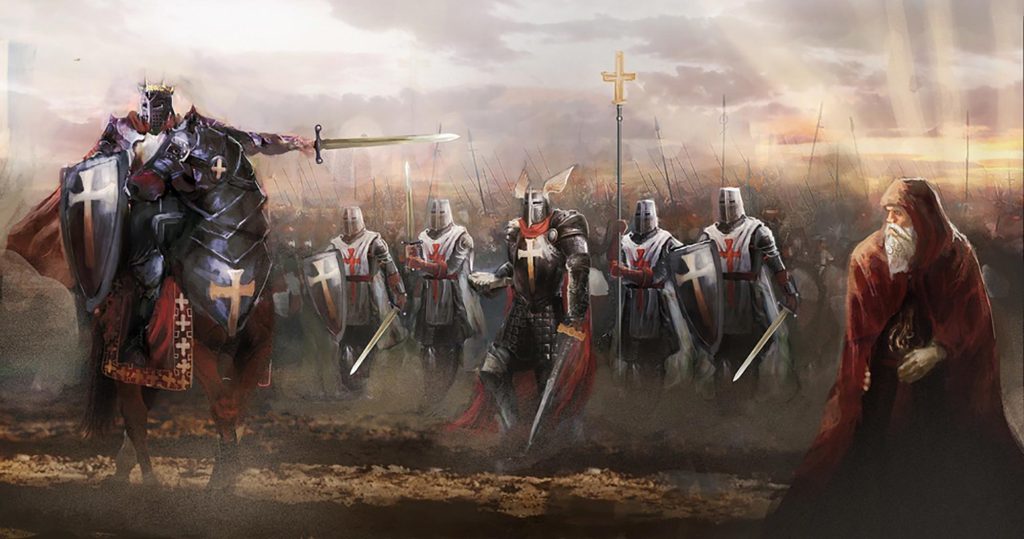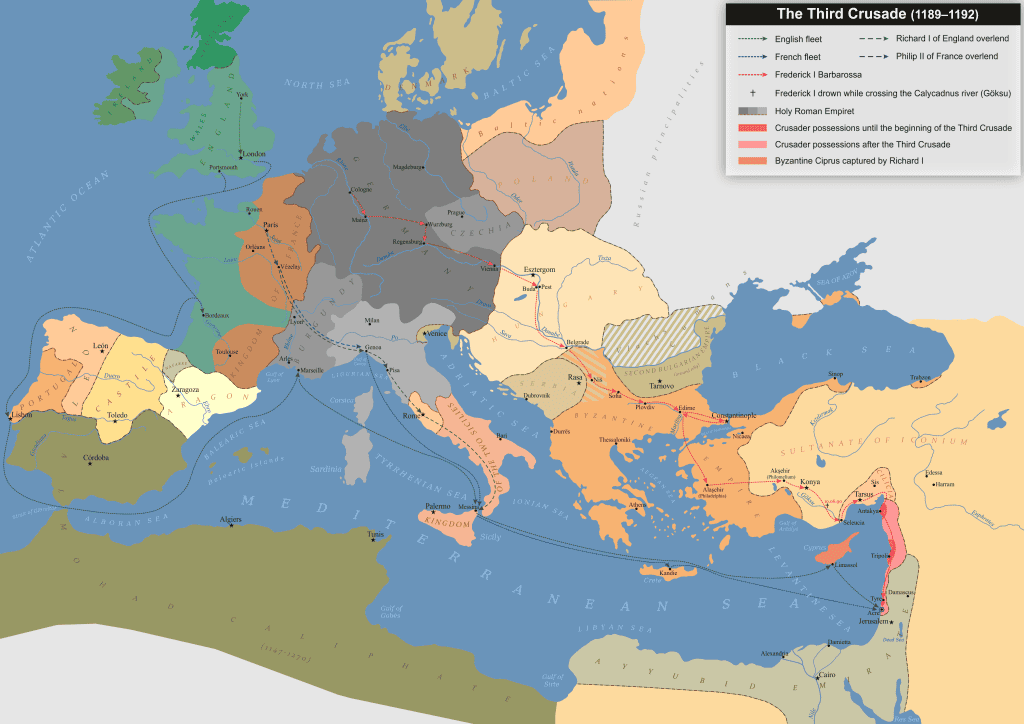The Sixth Crusade was a significant military campaign in the 13th century, specifically from 1228 to 1229. Unlike earlier Crusades, this campaign was characterized by diplomacy and negotiations rather than primarily relying on military force.
The Crusades

Crusade Background
The Sixth Crusade was part of a series of Christian military expeditions to reclaim Jerusalem and the Holy Land from Muslim control. It followed the Fifth Crusade, which had ended inconclusively in 1221.
Third Crusade

Frederick II of Hohenstaufen
The Holy Roman Emperor Frederick II was central to the Sixth Crusade. He was known for his intelligence, diplomatic skills, and ambition. Pope Gregory IX excommunicated Frederick for various reasons, including his delay in undertaking the Crusade. However, he embarked on the expedition despite his excommunication.
Treaty of Jaffa
Rather than launching a full-scale military assault on Jerusalem, Frederick II pursued a diplomatic approach. He negotiated with the Muslim ruler of Egypt, Al-Kamil, who was the nephew of the famous Saladin. Their negotiations resulted in the Treaty of Jaffa in 1229.
Terms of the Treaty
The Treaty of Jaffa allowed Frederick II to peacefully take control of several key Christian holy sites in Jerusalem without military conflict. These included the Church of the Holy Sepulchre and Bethlehem. In return, Frederick agreed to a 10-year truce with Al-Kamil, which allowed Christians to visit the holy sites.
Controversy and Criticism
Frederick II’s approach to the Crusade was controversial and faced criticism from the Papacy and other European leaders. Some viewed his negotiations as a betrayal of the traditional Crusader ideals, emphasizing military conquest and the expulsion of Muslims from the Holy Land.
Limited Success
So, while the Sixth Crusade did achieve some success in regaining control of Christian holy sites in Jerusalem, it did not result in the full conquest of the city or the Holy Land. Furthermore, the truce agreed upon in the Treaty of Jaffa was relatively short-lived, and the region continued to be a focal point of conflict between Christians and Muslims in the following years.
In summary, the Sixth Crusade, led by Frederick II, stands out among the Crusades for its unique emphasis on diplomacy and negotiation rather than military force. So, while it did not achieve the complete liberation of Jerusalem, it did result in the temporary return of certain Christian holy sites to Christian control.

